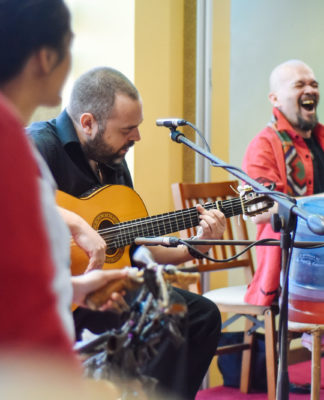READ between the lines; there is something wrong with them.
This is what key personalities claimed of the reproductive health bills pending in Congress as they joined an estimated 15,000 people at the UST Grandstand to celebrate the 40th year of Pope Paul VI’s encyclical Humanae Vitae or “Human Life.”
The celebration came at a time when the Catholic Church and pro-life groups have been critical of congressmen pushing for four reproductive health bills namely: House Bill (HB) No. 17 or the Reproductive Health, Responsible Parenthood and Population Development Act of 2007 by Albay Rep. Edcel Lagman; HB No. 812 or the Reproductive Health Care Act of 2007 by Iloilo Rep. Janette Garin; Senate Bill (SB) No. 40 or the Reproductive Health Care Act by Sen. Rodolfo Biazon; and SB No. 43 or the Reproductive Health Act of 2007 by Sen. Panfilo Lacson.
The bills have been criticized for their seeming support for abortion.
Angel Lagdameo, Catholic Bishops’ Conference of the Philippines (CBCP) president, described reproductive health bills as “very tricky.”
“We really do not know. Perhaps if we read the bills from the beginning up to end, there will be some loopholes we may find (that promote abortion),” Lagdameo told the Varsitarian.
“The Church still supports the natural family planning method.”
According to Dr. Ligaya Acosta of Human Life International-Asia, congressmen supporting reproductive health bills are deceiving the people by using the term “reproductive health.”
“Reproductive health is not about health. This is a grim machine for the culture of death,” Acosta said, claiming that once a reproductive health bill becomes law, contraceptives would be deemed “essential medicines” forcing hospitals and other health care units to sell them over the counter.
“Some of our rural health care units do not even have antibiotics and now you will ask them to sell contraceptives with dangerous side effects?” Acosta asked.
Acosta also hit a provision on HB 812 that requires sex education for six years, from grade five to fourth-year high school.
She said sex education will not stop teens from engaging in premarital sex and will not put an end to the rising cases of teenage pregnancies.
For his part, Wilfrido Villarama, Buhay Hayaan Yumabong (Buhay) party-list secretary-general, said a reproductive health law is no longer necessary in a predominantly-Catholic country like the Philippines.
“What the Church teaches us is simple: to regulate population in natural ways such as rhythm method and education,” Villarama told the Varsitarian.
Villarama, former representative of the second district of Bulacan, supported HB 4110 or the Reproductive Health Care Agenda Act of 2001 in the 12th Congress as a form of solidarity to the Lady Legislators Association who adopted him as an “honorary congresswoman.”
He eventually withdrew his support because the bill implicitly permits abortion should the pregnancy be deemed dangerous for the mother’s health.
Villarama suggested that instead of lobbying for unnecessary reproductive health bills, congressmen should focus on providing education to the youth.
He, however, clarified that sex education should be given in college, not in elementary and high school.
“The involvement of malice in these kinds of discussions is inevitable for elementary and high school students,” Villarama said.















